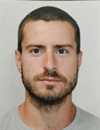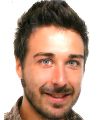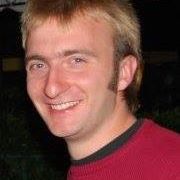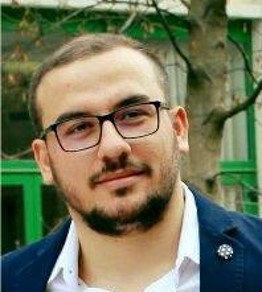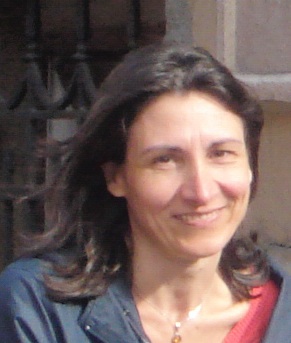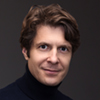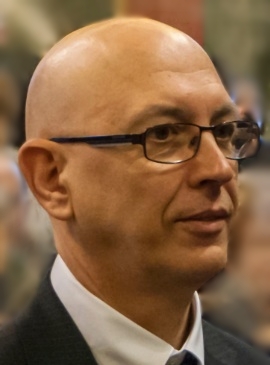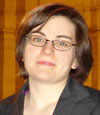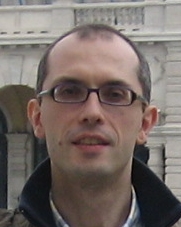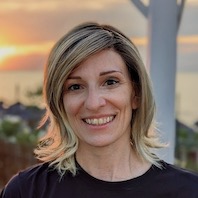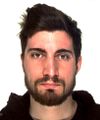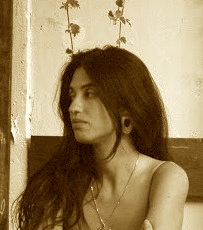Studying at the University of Verona
Here you can find information on the organisational aspects of the Programme, lecture timetables, learning activities and useful contact details for your time at the University, from enrolment to graduation.
Academic calendar
The academic calendar shows the deadlines and scheduled events that are relevant to students, teaching and technical-administrative staff of the University. Public holidays and University closures are also indicated. The academic year normally begins on 1 October each year and ends on 30 September of the following year.
Course calendar
The Academic Calendar sets out the degree programme lecture and exam timetables, as well as the relevant university closure dates..
| Period | From | To |
|---|---|---|
| I semestre | Oct 1, 2020 | Jan 29, 2021 |
| II semestre | Mar 1, 2021 | Jun 11, 2021 |
| Session | From | To |
|---|---|---|
| Sessione invernale d'esame | Feb 1, 2021 | Feb 26, 2021 |
| Sessione estiva d'esame | Jun 14, 2021 | Jul 30, 2021 |
| Sessione autunnale d'esame | Sep 1, 2021 | Sep 30, 2021 |
| Session | From | To |
|---|---|---|
| Sessione Estiva | Jul 19, 2021 | Jul 19, 2021 |
| Sessione Autunnale | Oct 19, 2021 | Oct 19, 2021 |
| Sessione Autunnale Dicembre | Dec 7, 2021 | Dec 7, 2021 |
| Sessione Invernale | Mar 17, 2022 | Mar 17, 2022 |
| Period | From | To |
|---|---|---|
| Festa dell'Immacolata | Dec 8, 2020 | Dec 8, 2020 |
| Vacanze Natalizie | Dec 24, 2020 | Jan 3, 2021 |
| Epifania | Jan 6, 2021 | Jan 6, 2021 |
| Vacanze Pasquali | Apr 2, 2021 | Apr 5, 2021 |
| Santo Patrono | May 21, 2021 | May 21, 2021 |
| Festa della Repubblica | Jun 2, 2021 | Jun 2, 2021 |
Exam calendar
Exam dates and rounds are managed by the relevant Science and Engineering Teaching and Student Services Unit.
To view all the exam sessions available, please use the Exam dashboard on ESSE3.
If you forgot your login details or have problems logging in, please contact the relevant IT HelpDesk, or check the login details recovery web page.
Should you have any doubts or questions, please check the Enrollment FAQs
Academic staff
 maurizio.boscaini@univr.it
maurizio.boscaini@univr.it
 alberto.burato@univr.it
alberto.burato@univr.it
 vittoria.cozza@univr.it
vittoria.cozza@univr.it
 mila.dallapreda@univr.it
mila.dallapreda@univr.it
 rosanna.laking@univr.it
rosanna.laking@univr.it
 giulio.mazzi@univr.it
giulio.mazzi@univr.it
 franco.zivcovich@univr.it
franco.zivcovich@univr.it
Study Plan
The Study Plan includes all modules, teaching and learning activities that each student will need to undertake during their time at the University.
Please select your Study Plan based on your enrollment year.
1° Year
| Modules | Credits | TAF | SSD |
|---|
Computer Architecture
2° Year activated in the A.Y. 2021/2022
| Modules | Credits | TAF | SSD |
|---|
3° Year activated in the A.Y. 2022/2023
| Modules | Credits | TAF | SSD |
|---|
1 module among the following| Modules | Credits | TAF | SSD |
|---|
Computer Architecture
| Modules | Credits | TAF | SSD |
|---|
| Modules | Credits | TAF | SSD |
|---|
1 module among the following| Modules | Credits | TAF | SSD |
|---|
Legend | Type of training activity (TTA)
TAF (Type of Educational Activity) All courses and activities are classified into different types of educational activities, indicated by a letter.
Mathematical analysis 2 (2021/2022)
Teaching code
4S00031
Teacher
Coordinator
Credits
6
Language
Italian
Scientific Disciplinary Sector (SSD)
MAT/05 - MATHEMATICAL ANALYSIS
Period
Primo semestre dal Oct 4, 2021 al Jan 28, 2022.
Learning outcomes
The aim of the course is to provide students with the fundamental notions of differential and integral calculus in many variables, generalizing and mastering the notions learned in the course “Mathematical Analysis I” and employing, if needed, the notions of the other courses attended during the first year of the Bachelor in Computer Science. At the end of the course the student must prove: - to know and to be able to understand the tools and the advanced notions of the mathematical analysis and to use such notions for the solution of problems; - to be able to use the notions learned in the course for the comprehension of the topics of further courses, not necessarily in the mathematical area, where the knowledge of mathematical analysis can be a prerequisite; - to be able to choose which mathematical tool or theoretical result can be useful for the solution of a problem; - to be able to appropriately use the language and the formalism of the mathematical analysis; - to be able to broaden the knowledge in Mathematics, Computer Science or in any scientific area using, when needed, the notions of the course.
Program
Cauchy problem for first order differential equations (ODE). Separable equations and the theorem of existence and local uniqueness.
Structure of the space of the solutions of a homogeneous linear ODE (first and second order). Solutions in the non-homogeneous case. The variation of constants method in the case of an equation of order 2. Slope fields and graphical analysis of an ODE in very simple cases.
Differential calculus in several real variables: limits and continuity. Directional derivatives and the gradient of a scalar function. Differentiability and the differential, the theorem on the total differential. Higher order derivatives, the Hessian matrix and Schwarz's theorem. Taylor's formula with Lagrange and Peano remainders. Unconstrained optimization: necessary and sufficient conditions for having local extrema. Constrained optimization: Lagrange multipliers. Dini's theorem.
The Riemann integral over the cartesian product of real intervals: definition and techniques for the calculation. The Riemann integral on admissible domains. Change of variables and special coordinate systems: polar, cylindrical and spherical. Parametric curves. Line integrals of scalar functions. Parametric surfaces in space, area of a surface, surface integrals and Gauss-Green formula. Line integrals and vector fields.
Bibliography
Examination Methods
The final exam consists of a written test including a series of exercises to be solved related to the academic program (specific instructions will be communicated throughout the course).
The final exam could be substituted by two ongoing tests, the former scheduled around the end of November and the latter coinciding with the first exam date in February. In this case, the exam grade will be given by the sum of the two partial assesments, with a maximum of 16 points each.
The exam aims to verify the candidate's ability to solve program-related problems, their possession of adequate analytical skills, as well as the ability to synthetize and abstract, starting from requests formulated in natural or specific language.
Exams will be held in presence.
Type D and Type F activities
Le attività formative in ambito D o F comprendono gli insegnamenti impartiti presso l'Università di Verona o periodi di stage/tirocinio professionale.
Nella scelta delle attività di tipo D, gli studenti dovranno tener presente che in sede di approvazione si terrà conto della coerenza delle loro scelte con il progetto formativo del loro piano di studio e dell'adeguatezza delle motivazioni eventualmente fornite.
| years | Modules | TAF | Teacher |
|---|---|---|---|
| 3° | Control theory | D |
Riccardo Muradore
(Coordinator)
|
| 3° | Biomedical Data and Signal Processing | D |
Silvia Francesca Storti
(Coordinator)
|
| 3° | Matlab-Simulink programming | D |
Bogdan Mihai Maris
(Coordinator)
|
| years | Modules | TAF | Teacher |
|---|---|---|---|
| 3° | Introduction to 3D printing | D |
Franco Fummi
(Coordinator)
|
| 3° | Python programming language | D |
Vittoria Cozza
(Coordinator)
|
| 3° | HW components design on FPGA | D |
Franco Fummi
(Coordinator)
|
| 3° | Rapid prototyping on Arduino | D |
Franco Fummi
(Coordinator)
|
| 3° | Protection of intangible assets (SW and invention)between industrial law and copyright | D |
Roberto Giacobazzi
(Coordinator)
|
| years | Modules | TAF | Teacher | |
|---|---|---|---|---|
| 1° | Subject requirements: mathematics | D |
Rossana Capuani
|
|
| 3° | The fashion lab (1 ECTS) | D |
Maria Caterina Baruffi
(Coordinator)
|
|
| 3° | LaTeX Language | D |
Enrico Gregorio
(Coordinator)
|
|
Career prospects
Module/Programme news
News for students
There you will find information, resources and services useful during your time at the University (Student’s exam record, your study plan on ESSE3, Distance Learning courses, university email account, office forms, administrative procedures, etc.). You can log into MyUnivr with your GIA login details: only in this way will you be able to receive notification of all the notices from your teachers and your secretariat via email and soon also via the Univr app.
Graduation
List of theses and work experience proposals
| theses proposals | Research area |
|---|---|
| Analisi e percezione dei segnali biometrici per l'interazione con robot | AI, Robotics & Automatic Control - AI, Robotics & Automatic Control |
| Integrazione del simulatore del robot Nao con Oculus Rift | AI, Robotics & Automatic Control - AI, Robotics & Automatic Control |
| Domain Adaptation | Computer Science and Informatics: Informatics and information systems, computer science, scientific computing, intelligent systems - Computer graphics, computer vision, multi media, computer games |
| Domain Adaptation | Computer Science and Informatics: Informatics and information systems, computer science, scientific computing, intelligent systems - Machine learning, statistical data processing and applications using signal processing (e.g. speech, image, video) |
| BS or MS theses in automated reasoning | Computing Methodologies - ARTIFICIAL INTELLIGENCE |
| Domain Adaptation | Computing Methodologies - IMAGE PROCESSING AND COMPUTER VISION |
| Domain Adaptation | Computing methodologies - Machine learning |
| Dati geografici | Information Systems - INFORMATION SYSTEMS APPLICATIONS |
| Analisi e percezione dei segnali biometrici per l'interazione con robot | Robotics - Robotics |
| Integrazione del simulatore del robot Nao con Oculus Rift | Robotics - Robotics |
| BS or MS theses in automated reasoning | Theory of computation - Logic |
| BS or MS theses in automated reasoning | Theory of computation - Semantics and reasoning |
| Proposte di tesi/collaborazione/stage in Intelligenza Artificiale Applicata | Various topics |
| Proposte di Tesi/Stage/Progetto nell'ambito dell'analisi dei dati | Various topics |
Attendance
As stated in the Teaching Regulations for the A.Y. 2022/2023, attendance at the course of study is not mandatory.
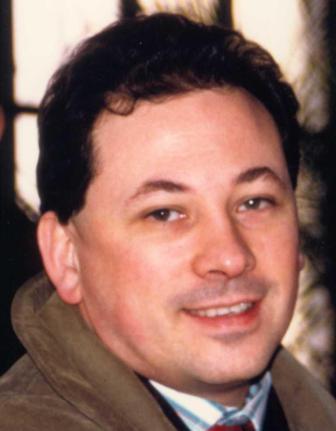
 +39 045 802 7980
+39 045 802 7980


